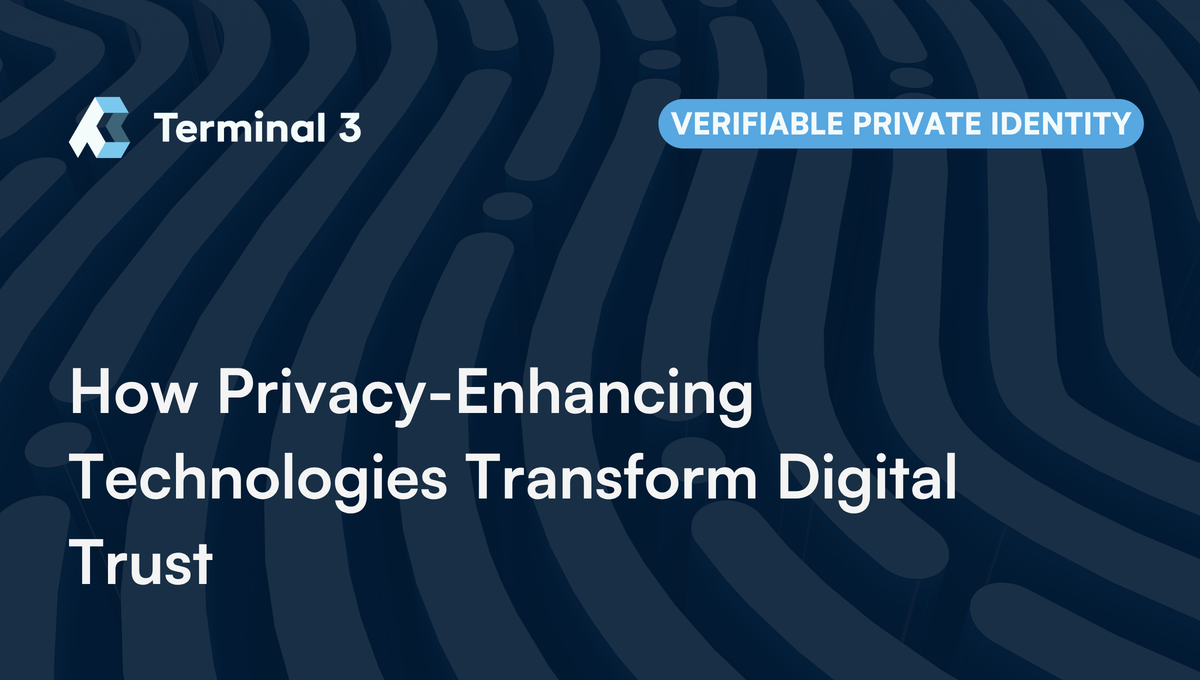How Privacy-Enhancing Technologies Transform Digital Trust
Users are unaware of how their personal information is collected, stored, and utilized, leading to skepticism about the safety of their data. At the intersection of decentralized technologies and privacy-enhancing technologies (PETs)—lies the solution to this trust deficit.

We live in an era where artificial intelligence (AI) is evolving at an unprecedented pace. AI systems have become more sophisticated and integral to our lives. But this growth has triggered a unique challenge: the vast amounts of personal data being consumed and stored by AI applications is creating data vulnerability for users, making them distrustful of AI.
Users are unaware of how their personal information is collected, stored, and utilized, leading to skepticism about the safety of their data. At the intersection of two powerful technological approaches—decentralized technologies and privacy-enhancing technologies (PETs)—lies the solution to this trust deficit.
Beyond Centralization
Traditional data storage models create significant vulnerabilities. When sensitive information is stored in centralized databases, whether for identity verification, financial transactions, or healthcare records, it creates a single point of failure that's increasingly vulnerable to breaches.
Decentralized storage fundamentally transforms this model by distributing data across a network of nodes. Unlike centralized systems managed by a single entity, decentralized approaches use peer-to-peer networks, anchored by the blockchain, to eliminate dependence on any single authority. This structure provides inherent advantages:
- Enhanced reliability: With no single point of failure, these systems are fault-tolerant by design
- Improved security: Data is encrypted and split across multiple nodes, making attacks significantly more difficult
- User control: Access can be managed directly by data owners rather than centralized gatekeepers
A decentralized approach for storing sensitive user information ensures that data remains secure while still being accessible when needed.
The Missing Link to Data Privacy
While decentralization provides a robust foundation, privacy-enhancing technologies (PETs) enable secure and private interactions with data. These technologies allow for verification, authentication, and authorization without exposing underlying information:
- Zero-Knowledge Proofs: These cryptographic methods validate information without revealing the underlying data—proving, for example, that someone is over 21 without disclosing their actual birthdate.
- Homomorphic Encryption: This revolutionary approach allows computations to be performed on encrypted data without decryption, keeping sensitive information secure throughout processing.
- Trusted Execution Environments (TEEs): These secure enclaves within processors protect sensitive code and data from interference, even from the operating system itself.
- Multi-Party Computation: This enables multiple parties to jointly compute functions while keeping their respective inputs private from each other.
A Holistic Solution to Secure User Data
By securing user data in a decentralized manner and providing access via privacy-enhancing technologies, we can pave the path for trustworthy AI interactions.
Decentralized storage provides the foundation, ensuring that data isn't vulnerable to centralized breaches. Privacy-enhancing technologies enable secure interaction with this data, allowing verification and computation without exposure. Together, they create a secure environment where AI agents can perform valuable tasks without directly accessing sensitive information.
Privacy-preserving identity assets like Decentralized Identifiers (DIDs) and Verifiable Credentials (VCs) further enable this by allowing users to selectively share information while maintaining control over their personal data. DIDs allow individuals to own and control their digital identities by storing their credentials in personal wallets rather than corporate databases. Verifiable credentials complement DIDs by providing cryptographically secure, portable digital credentials.
These documents can be verified by anyone without requiring access to the underlying data, enabling seamless verification while preserving privacy.
As AI capabilities continue to evolve, the combination of decentralization and privacy-enhancing technologies will be essential for maintaining user trust and enabling responsible innovation.
About the Terminal 3 Network (T3N):
The Terminal 3 Network (T3N) is a decentralized private data network that empowers individuals with self-sovereign control of their personal data, enabling verifiable private identities, secure AI agent interactions, and a trusted data economy.
Terminal 3's approach combines decentralized technology with privacy-enhancing technologies to create a secure data layer between users and AI systems. The Terminal 3 Network enables users to verify information without revealing underlying data by leveraging decentralized identifiers (DIDs), verifiable credentials and zero-knowledge proofs.
Ready to explore how Terminal 3's technologies can transform your approach to AI data privacy?
Sign up for our waitlist or read our litepaper to learn more about our comprehensive solution.




